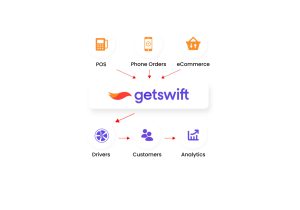CSSE’s New Profit Projections Likely Rest on Success of Mysterious Acquisition
A lot can change in a couple of seasons – just look at recent IPO Chicken Soup for the Soul Entertainment (ticker: CSSE).
After a 40{efe5d79870c08482e17ab0c97855f89429dac5f22c46026d3ca83573faec2208} decline in its shares since they listed last year, CSSE has made financial projections that grabbed the attention of some investors. The company, which will report fourth-quarter results late Tuesday, recently announced forecasts for 2018 EBITDA of $18 million on revenue of $36 million. That puts the shares on a multiple of 4.4 times forward EBITDA, a reasonable price if earnings can keep growing.
But before counting their chickens, investors should be sure to understand where the growth is coming from – and trust that the company can deliver it. First, and most obviously, the company’s prospects have little to do with its name. The company pays a parent entity for the right to use storylines from the eponymous book series but doesn’t share in any sales of those volumes.
Indeed, CSSE’s key assets at the time of its IPO were television shows. In particular, the Hidden Heroes series appeared to be its biggest moneymaker, with the show running on CBS in 2016 and 2017. But while that show hasn’t gone away, it has moved to the lower-tier CW network for its third year after viewership fell 11{efe5d79870c08482e17ab0c97855f89429dac5f22c46026d3ca83573faec2208} in 2017 in the important 18-49 demographic, according to Nielsen.
The real growth story apparently lies in last year’s purchase of Screen Media Ventures, whose main assets are a library of rights to over 3,000 films and 60 TV series, along with an online video service called Popcornflix. Similar to Sony’s Crackle, Popcornflix offers viewers ad-supported entertainment and is available on standard platforms like Roku, as well as its smartphone app. CSSE has suggested the Screen Media deal was a bargain, with a price of just $5 million for assets appraised at over $31 million.
But there are a number of key questions the company needs to answer. First, if Screen Media is a valuable, growing asset, exactly what’s been holding it back in recent years? Revenue has fallen steadily from $17.1 million in 2014 to $12 million in 2017. While EBITDA has increased to $5 million from about $1.4 million over that period, such a trend doesn’t look sustainable.
And Popcornflix faces tough competition. Deep-pocketed players like Netflix and Hulu – not to mention industry veterans like HBO – can pay massive sums for the best content. That’s true of studio libraries as well as new shows should Popcornflix try to get its hands on fresh material.
Even with good content, the advertising model looks challenging. Just look at Sony’s experience with Crackle, which has been around for several years without getting noticeable traction. Viewers might remember that Jerry Seinfeld’s Comedians in Cars Getting Coffee got started on Crackle, but that show has since graduated to Netflix.
Of course, Popcornflix’s offering of library content has intrinsic value. Movies like Braveheart and Shutter Island will probably earn money for many years and keep viewers coming back. But they’re less likely to bring people there in the first place in the same way an original series can.
It would also help to understand the profile of Popcornflix’s 15 million “active users” and what they’re worth to advertisers. The number sounds remarkably close to Hulu, which boasts 17 million subscribers, many of whom have a plan that includes some advertisements.
Part of the answer may be that many of Popcornflix’s “active users” are spread across 56 countries where it’s available. If those users are scattered too thinly or in countries advertisers don’t care to reach, they are unlikely to generate value for CSSE.

While it’s hard to measure the use of the Popcornflix apps, the website appears to have been in steady decline over the last few years. Weekly views peaked in 2014 and now stand at about half that level, according to publicly-available data from Alexa.
In theory, CSSE can use profits from Screen Media to invest further into Popcornflix. After all, the company has said it will be immediately cash-flow positive.
But if that effort proves more expensive, the company’s balance sheet could come under fire. It currently has $10 million of cash and no debt. But the company has other expenses to consider, such as the license fees to CSSE’s parent company equal to 10{efe5d79870c08482e17ab0c97855f89429dac5f22c46026d3ca83573faec2208} of revenue. If CSSE wants to attract investors, now is the time to tell the real story behind its miraculous M&A deal.







